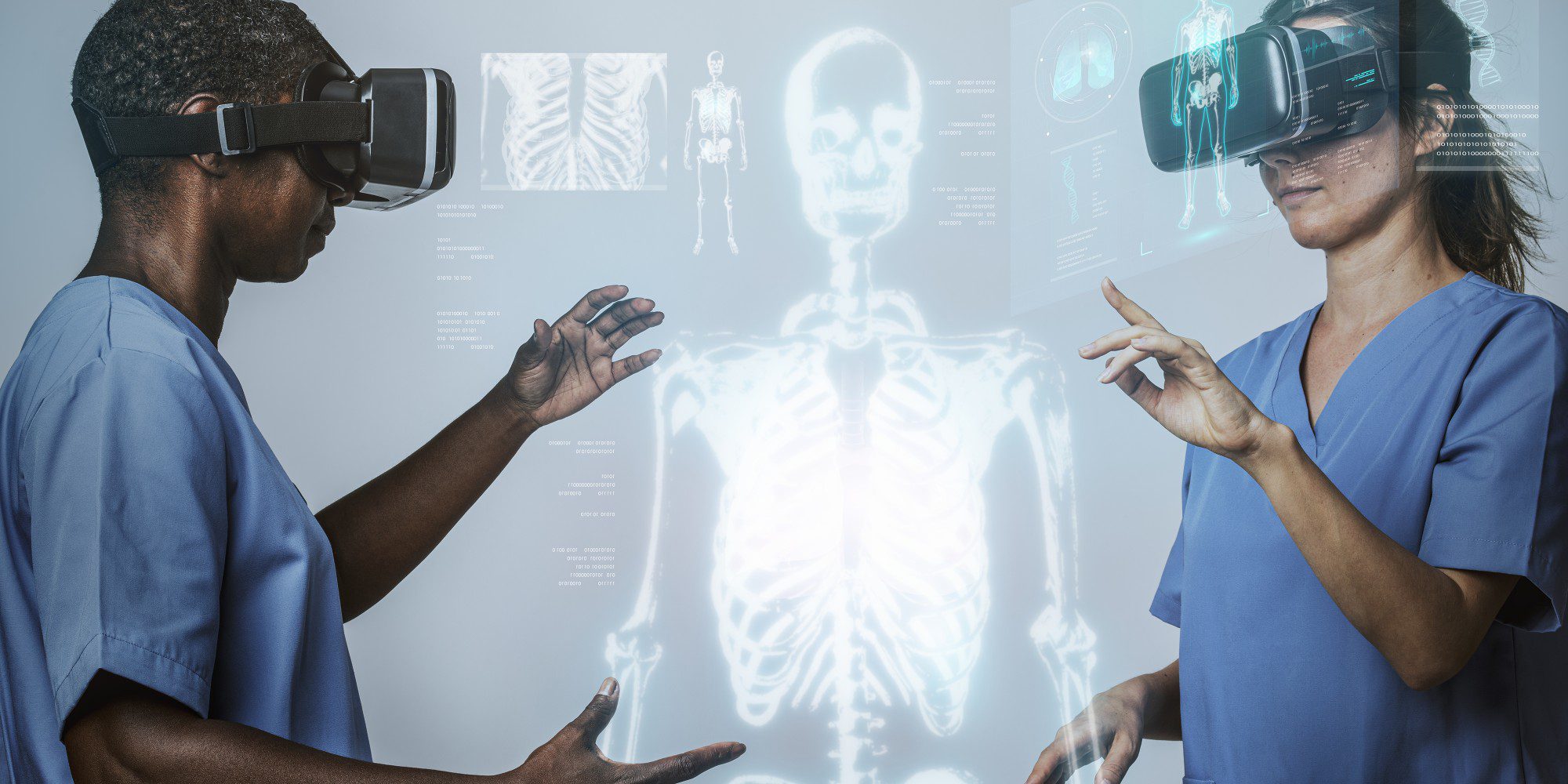News and Insights
Transforming healthcare with AI and machine learning
March 19, 2024
In 2016, eminent physicist and cosmologist Stephen Hawking said, “Everything that civilisation has to offer is a product of human intelligence; we cannot predict what we might achieve when this intelligence is magnified by the tools that AI may provide, but the eradication of war, disease, and poverty would be high on anyone’s list.” This was back when artificial intelligence (AI) and machine learning were still learning to crawl. In 2024, AI has become an indispensable part of the mainstream, permeating almost every sector, and yielding several benefits. Healthcare is one of these sectors. From diagnosis to treatment and disease prevention, AI has irrevocably transformed healthcare, opening new avenues in research and development. The AI in the healthcare market is predicted to grow from $20.9 billion in 2024 to $148.4 billion by 2029.1 While there is palpable excitement around how AI can further boost the healthcare landscape and aid ailing healthcare systems across the world, there are several ways in which it has already started creating waves.
Enhancing diagnostic accuracy
Diagnosis forms the crux of modern medicine and is the most important step in clinical practice. Radiology is a key part of it and provides a greater understanding of diseases and the way they affect individuals. Medical imaging techniques, bolstered by the integration of AI and machine learning, have refined this method to make it more precise by reducing the margin of human errors.
As the burden of communicable and non-communicable diseases grows at an unprecedented rate, predictive analysis plays an important role in analysing patient data and finding disease patterns to prevent future emergencies. Predictive analysis uses AI to collate and analyse patient data in real-time to identify vulnerable groups among the population and provide diagnostic and prognostic predictions.
Personalised treatment plans
Just like no two human beings are alike, diseases affect individuals differently. This has led to a push for creating personalised treatment plans that consider every individual’s unique physiological, genetic, behavioral, and biochemical traits before providing a solution. AI and machine learning can dissect patient data to identify the genetic features of an individual, thereby determining the best course of treatment. Furthermore, when it comes to treatment and medication, AI-assisted technologies can accelerate the drug discovery process. AI can be leveraged to evaluate drug-target interactions, identify novel targets, improve small molecule compound design and optimisation, and examine disease mechanisms.2 This can help in reducing the rate of failure and producing medicines that are affordable and safe to use.
Streamlining clinical workflow and decision making
One of the biggest challenges of healthcare across the world is the disparity between the surging number of patients and an inadequate number of healthcare professionals. This is especially evident in low and middle-income countries struggling with inadequate staffing and insufficient resources. In this context, AI-driven clinical decision-making systems (CDSS) can help healthcare professionals make evidence-based decisions based on patient data and prevent accidents arising from errors. Furthermore, these systems can be used in education and training.
While CDSS can streamline clinical workflow at the point of care, AI-enabled remote monitoring and telemedicine can be leveraged to provide unhindered access to healthcare for patients with chronic illnesses and boost accessibility to specialists.
Challenges of AI in healthcare
While AI and machine learning have several benefits, for them to be effective, several challenges need to be addressed first. The efficiency of AI and machine learning in healthcare is dependent on the availability of quality data. Hence, a robust framework is required to collect appropriate datasets that facilitate interoperability and be completely assimilated into healthcare systems. Moreover, stringent privacy and security measures should be in place to protect patient data.
AI is also prone to biases that can affect disadvantaged groups due to inaccuracies in the algorithmic forecasts, further propagating social inequities and hampering accessibility. Therefore, pre-processing data through sampling before model construction, in-processing by applying mathematical techniques to encourage a model to learn balanced predictions, and post-processing are some ways to mitigate bias.
The future of healthcare is intricately linked to that of AI and machine learning. Continuous research into its applications in diagnosis and treatment has expanded its possibilities. For example, quantum computing can exponentially advance research and treatment. Similarly, blockchain and the Internet of Things can further boost the healthcare ecosystem. By embracing these technologies responsibly and proactively addressing associated challenges, we can pave the way for a future where healthcare is not only more precise and personalised but also more accessible and equitable.
1. https://www.marketsandmarkets.com/Market-Reports/artificial-intelligence-healthcare-market-54679303.html#:~:text=The 20global 20AI 20in 20Healthcare 20market 20is 20expected 20to 20record,demand 20from 202024 20to 202029.
2. https://www.ncbi.nlm.nih.gov/pmc/articles/PMC10302550/
TAGS: Technology
POSTED BY: Aman Gupta

